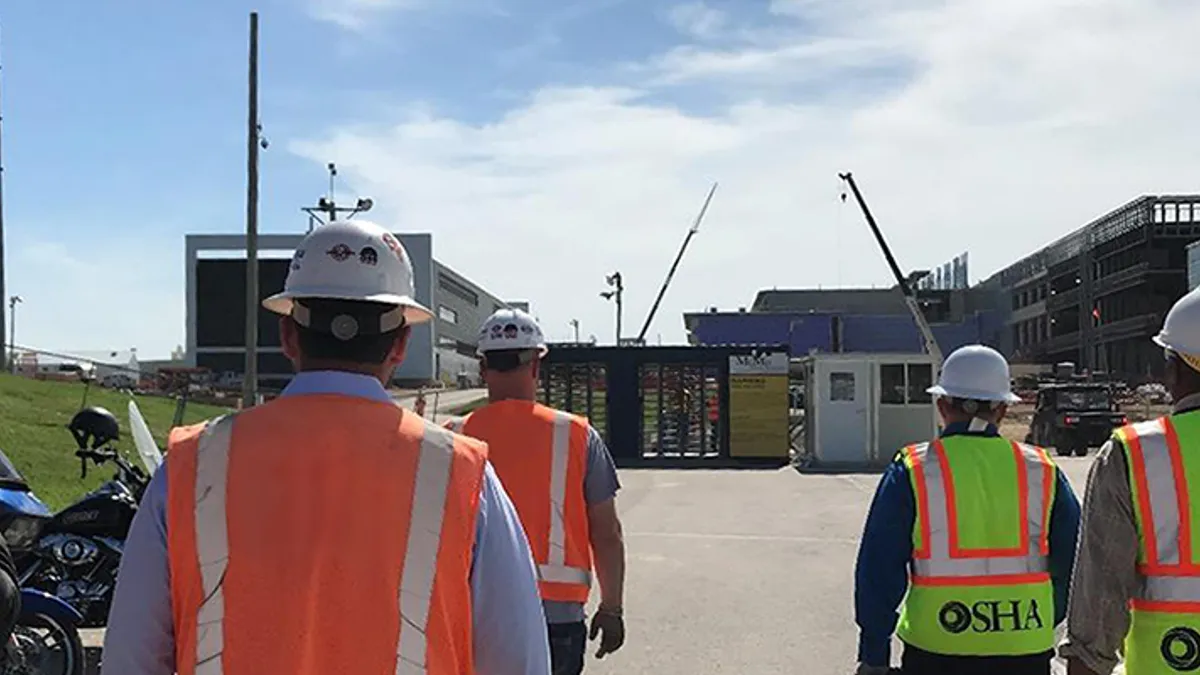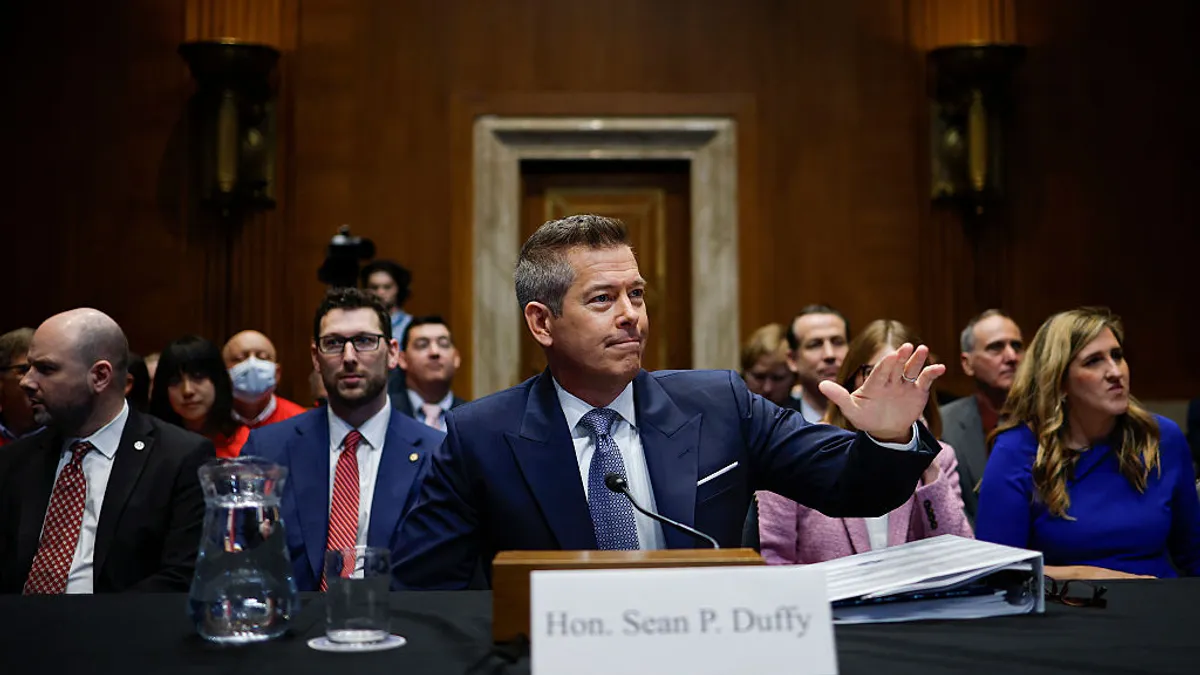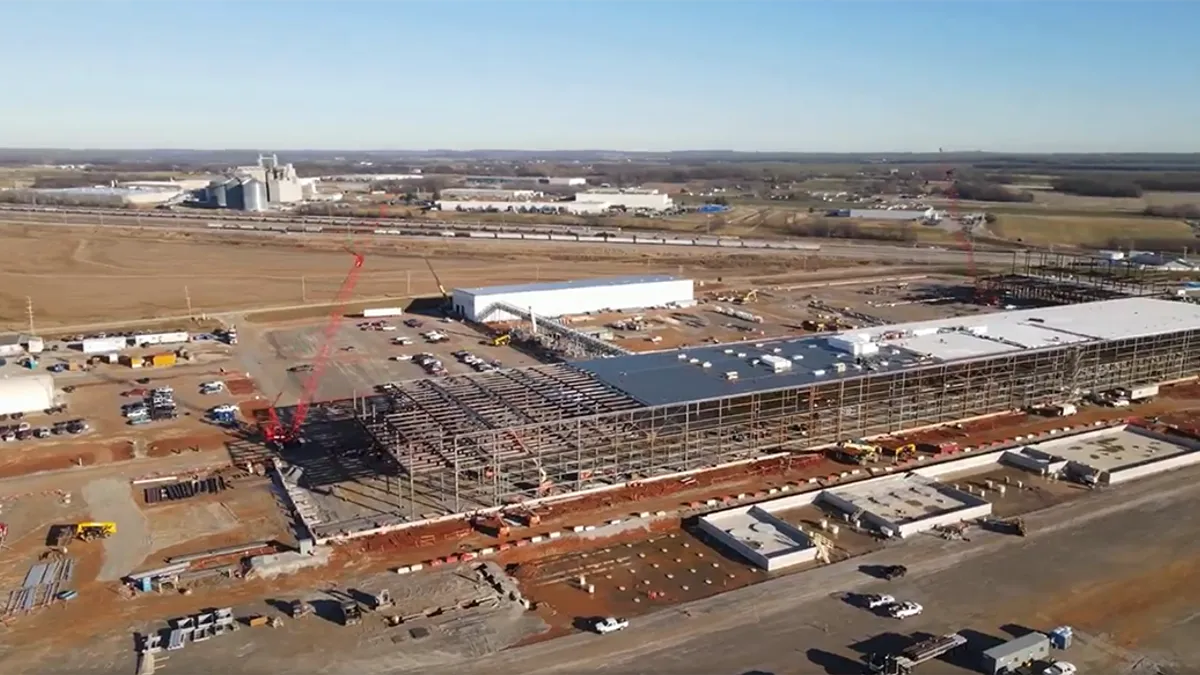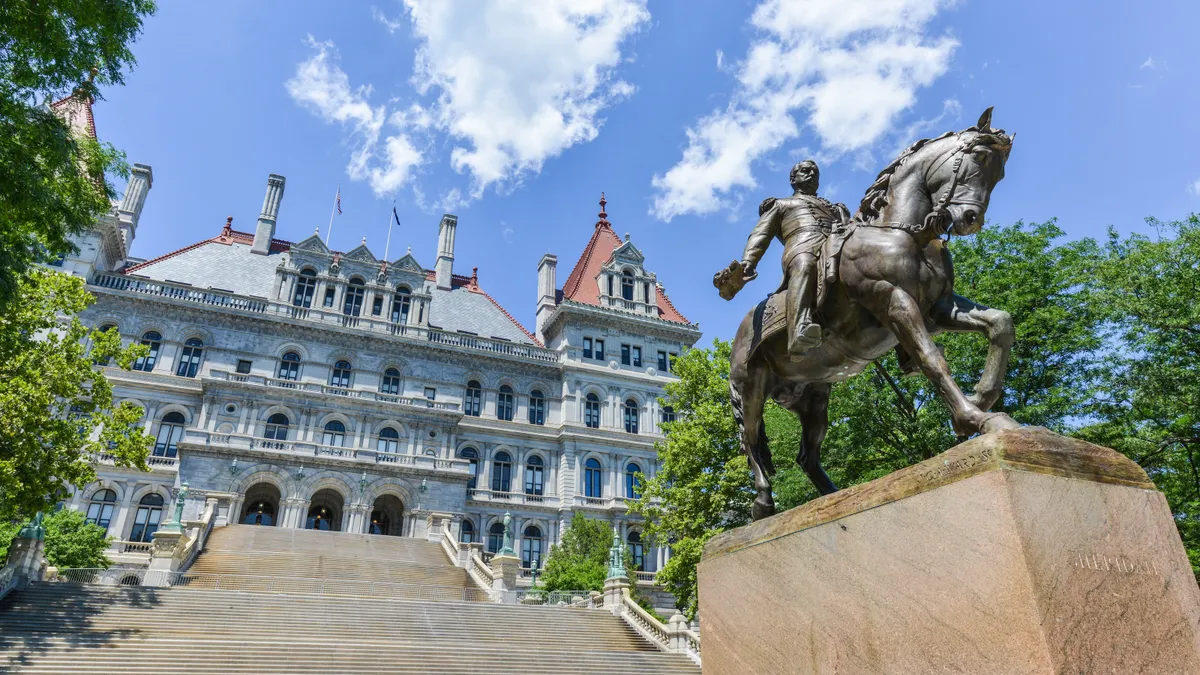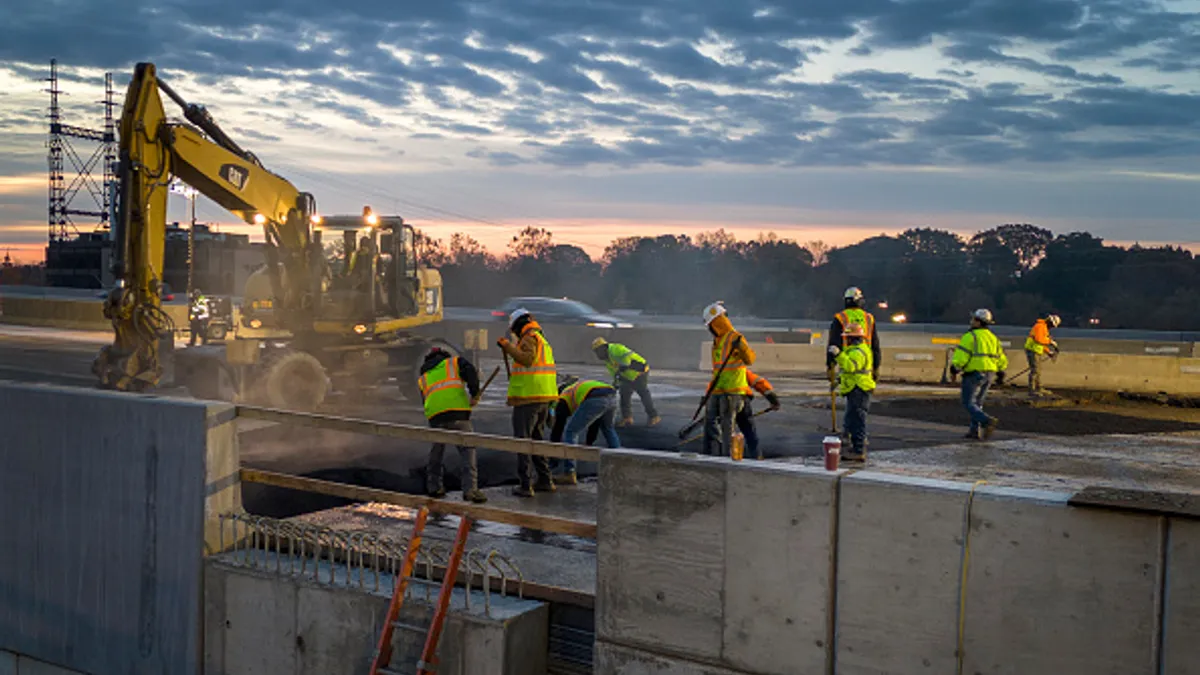OSHA was as active as ever this quarter inspecting jobsites and doling out fines to construction companies that subject their workers to hazards, and that activity might be increasing soon. Labor Secretary Alexander Acosta recently told a House appropriations committee that there are 76 additional OSHA inspectors in training right now, with some nearly ready to head out into the field.
In the first three months of 2019, the largest fine came from an OSHA-approved state plan administered by the Virginia Department of Labor and Industry under its Virginia Occupational Safety and Health (VOSH) program.
There are currently 22 state plans covering both public and private workers and six state plans that cover public employees only. State plans must have standards that are at least as effective as federal ones, and that are on par with the agency’s monetary penalties.
OSHA penalties increased at the beginning of this year to $13,260 per violation for serious, other-than-serious and posting requirement violations; $13,260 per day for failure to abate violations; and $132,598 per violation for willful or repeated violations.
Falls played a prominent role in this quarter's list of violations, affirming that the agency is still focused on eliminating the hazards that pose the most danger to construction workers. Another one of OSHA's "Fatal Four" hazards, those involving electrical injuries, took the top spot.
Documents from VOSH for two of the top fines of the quarter — $381,762 levied against PKC Construction, based in Lenexa, Kansas, and $148,930 against TMP Associates in Chesapeake, Virginia — were not readily available.
1. T.D. Fraley & Sons— Alexandria, Virginia
Total Proposed Fines: $528, 692
Status: Violations under contest
VOSH issued Fraley 12 violation citations after a worker who was breaking down scaffolding at a jobsite in Springfield, Virginia, had to be hospitalized after coming into contact with an overhead power line.
Upon inspection, VOSH investigators found that scaffolds rising 14 feet to 20 feet high were being supported using blocks and boards instead of sound and level footings; that scaffolds had inadequate guardrail systems; that Fraley allowed employees to work within 10 feet of an overhead high voltage power line; and that Fraley did not contact VOSH about the employee’s injury and hospitalization within the required 24-hour timeframe.
In all, VOSH issued Fraley seven citations for serious violations, four citations for willful-serious violations and one citation for an other-than-serious violation.
2. Crown Roofing LLC — Sarasota, Florida
Total proposed fines: $265,196
Status: Violations under contest; pending abatement of violations, pending penalty payment
OSHA has inspected Crown Roofing jobsites 17 times in the last five years and has cited the company for fall violations 11 times. The most recent agency inspections netted the company two monetary penalties of $132,598 each.
OSHA said it was inspecting two of Crown’s projects, one in Port St. Lucie and the other in Naples, when investigators observed the company’s crews working without fall protection.
OSHA issued Crown two repeat violations for allowing employees to work on both sloped and flat roofs without protecting them from fall hazards. Crown is contesting the violations on the Port St. Lucie project.
Crown made Construction Dive’s list of top OSHA penalties in the fourth quarter of 2018 for not providing adequate fall protection. OSHA fined the company $129,336, but Crown is contesting that penalty and the accompanying violations.
3. Frame Q — Palisades Park, New Jersey
Total Proposed Fines: $261,451
Status: Pending abatement of violations, pending penalty payment
OSHA levied this most recent penalty against Frame Q in January after an inspection revealed the company had violated fall protection standards, but this latest run-in with the agency could be the least of the framing contractor’s worries right now.
In February, the U.S. Attorney for the District of New Jersey filed suit against Frame Q in an effort to collect more than $678,000 of past-due OSHA fines dating back to 2014. OSHA records indicate that the fines are a result of fall protection-focused inspections. Frame Q contested at least one of the citations, but its claim was rejected based on failure to file by the deadline.
The actual violation penalties outlined in the lawsuit are exclusive of this quarter’s fine and total $473,178, but the government has added penalties, interest and fees of $173,100 to the bill.
4. Five Star Commercial Roofing — Hartford City, Indiana
Total Proposed Fines: $182,000
Status: Pending abatement of violations
Another state plan handled this investigation — the Indiana Department of Labor’s OSHA. The agency determined that Five Star committed several violations around fall protection including failure to: protect workers from falling through holes higher than 6 feet off the ground with fall protection; provide a rescue plan in the event of a fall; retrain employees on fall protection; provide for frequent and regular inspections; and protect employees working on low-slope roofs. Indiana OSHA also said the appointed safety monitor was engaged in other activities and could not adequately perform monitoring duties.
Federal OSHA’s records indicate that Five Star has negotiated its fine down to $126,000 and has been allotted time to abate the violations.
5. PCL Construction Services — Orlando, Florida
Total Proposed Fines: $144,532
Status: Pending abatement of violations, pending penalty payment
After two workers were killed when supports collapsed during a concrete pour at a JW Marriott project in Orlando, Florida, OSHA cited and fined PCL Construction Services, one of the U.S. arms of Edmonton, Ontario-based PCL Construction, for not inspecting formwork, shoring, working decks and scaffolds to make sure they complied with formwork drawings. The agency also said that PCL did not make sure that the formwork brace was able to support vertical and lateral loads.
The two workers were employees of two subcontractors, and OSHA sent those companies hazard alert letters in which the agency recommended they beef up their safety policies to include follow-ups with general contractors when it comes to the installation of shoring equipment.
OSHA also initially cited and fined subcontractor Universal Engineering Services, based in Orlando, Florida, as well, but later found that Universal did not violate any standards in connection to the accident and withdrew the fine.
6. Sonny Steel Erectors — Houston, Texas
Total Proposed Fines: $116,689
Status: Pending penalty payment
After a planned safety inspection, OSHA cited structural steel and precast concrete contractor Sonny Steel Erectors with two repeat violation citations on a project in Spring, Texas.
The agency issued a $14,587 penalty after inspectors observed employees working on an aerial lift and failing to wear body belts and lanyards attached to the boom or basket. The second penalty, in the amount of $102,102, came after inspectors saw employees erecting steel and either walking or working on surfaces with an unprotected edge at heights of more than 15 feet high without guardrail, safety net or personal fall arrest systems, positioning device systems or fall restraint systems.
7. CV Construction LLC — Akron, Ohio
Total Proposed Fines: $103,468
Status: Violations under contest (here and here)
OSHA investigated Akron, Ohio-based CV Construction twice at the same jobsite in September and October of 2018, based on complaints about fall protection violations.
As a result of both inspections, with a fine of $51,734 accompanying each, the agency issued CV a total of four willful violations. Two were for not protecting employees working at heights of 6 feet or greater with a guardrail, safety net or personal fall arrest system, and two others were for not providing appropriate training for those employees who might be exposed to fall hazards.
8. Muska Electric — Roseville, Minnesota
Total Proposed Fines: $100,000
Status: Violations Under Contest
A Muska Electric employee, according to OSHA inspectors, was working in a Minneapolis office building in September 2018, replacing fluorescent lights with LED lights. In the course of performing the work, the employee came into contact with a live conductor and was electrocuted. The employee died. Muska is contesting the OSHA violation citation and fine.


